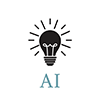
Have you ever questioned the common cliched of “go with your strengths?” I have. I still do. In fact, my most common belief is that I want to do exactly the things that I think are my weakness because I know that it the only way that I’ll get better. That strategy is just a small part of my overall belief that I do all I can today to make sure that I’m as prepared as possible for tomorrow, and whatever it throws my way.
Fresh off studying Deep Work, which I wrote about here, I just finished a book titled The Compound Effect, by Darren Hardy that has me thinking a bit more about that strategy though and I wanted to put my thoughts down as I try to work it out.
The Compound Effect is fundamentally about the strategy of producing results from small, seemingly insignificant actions performed consistently over time. The ability to be consistent in improving in the right areas in even the slightest of ways, every day, and the impact that this has on your life in the long run.
I’ll jump into the semi-review portion of this writing here in a bit, but I need to parse an idea while it’s bothering me first. How does The Compound Effect impact a person who focuses not on doing consistent actions over time, but consistently staying in a state of controlled chaos motivated by learning and moving towards new skills or ideas?. Here’s an example.
The common thought is that a person needs to be in an industry for 7 years to be considered an “industry expert”, whatever that means. I think this idea is better there is a significant amount of time and testing that is required to become a Master Electrician. The most common way to do that is by working as an Electrician, doing that type of work, honing your skills daily, over an extended period of time.
Someone like myself though doesn’t exactly work that way. My mind is wired in a way that I cannot simply do the same sort of things daily. My single largest personality strengths are business creativity and curiosity. Not creativity in a sense of writing songs or painting, creativity in new business ideas, strategy, and discoveries in data. In a more practical sense, thing things that give me oxygen and ensure that I’ll enjoy my day are coming into work in the morning and creating new data visuals, reports, or analyzing digital analytics looking for the next growth opportunity in our organizational data.
I know it sounds really nerdy, but it’s really that simple, I can spend 7 hours in a day doing something I’m not crazy about doing like sitting in another meeting that could have been an email or a phone call, if I’m able to spend the first hour of the day doing something completely unstructured and creative.
I won’t go into more details as of right now as I need to think about it a bit but just marinate on this thought. What is the best approach? Doing the same certain skills repeatedly, compounding those skills to become a master in one certain area, or taking on a wider range of skills to where you may not enjoy the compounding interest of being super focused in one area but in the end, but you will have a wider range set that you may build over time?:
How to Apply The Compound Effect
With that question in mind, the practical details of compounding knowledge are where I fell in love with the ideas in this book. The Compound Effect highlights that your only path to success is through the mundane, unsexy, unexciting and sometimes difficult daily disciplines compounded over time. Our brains are wired naturally for comfort and safety, often at the expense of our own long-term interest. Discipline is the only solution where we cultivate a commitment to the ordinary tasks that move us incrementally but reliably toward our goals and aspirations.
For me, my creative idea process does just that. I’ve created the future that I’m in now during my morning creative ritual and when I show up tomorrow at 7 am, I’ll be working on doing so for my future 5 years from now. I show up to work early because meetings start for me often right at 8 am. If I didn’t show up early I wouldn’t have the ability to explore the ideas that I do. Not only would I not be able to do the things that I most enjoy at work, but the compounding effect of the skills and ideas that I learn during that time wouldn’t apply to my future.
For example, during that time as I’ve been in my current role at GVTC. I started off exploring Google Analytics, which led to discoveries of new opportunities for the company in digital and e-commerce. This also led to new opportunities for me as well as I became quite skilled at Google Analytics and then received more work and responsibility, that were just more opportunities.
In the past 3 years, through that exploratory time in the morning, I’ve become quite skilled in several different knowledge-based platforms that have done remarkable things for my career such as Google Analytics, Power Bi, Tableau, Python, SQL, not to mention becoming skilled at API integration when I discovered that I needed these platforms to pass data between each other.
Measure Everything
The other part of The Compound Effect that I loved was the concept of measuring everything. Anyone that knows me knows that I measure things like how much time I save a year by creating a hot script for opening outlook and creating a blank email or knowing the percentage increase in the number of times I’ve had to mow the yard this year over last year. It’s an obsession, and it can be kind of frustrating for my wife, but it’s the way I’m wired.
What I love about this book is that one of the critical quotes is tracking is my go-to transformation model for everything that ails me. Awareness, whether it’s good or bad, is the first step of improvement in everything. You simply cannot lose weight, at least healthily and productively, without first understanding and tracking your weight. That’s why your mind tells you not to weigh yourself because if you know your weight and you’re not happy with it, then it’s on you to do something about it and that will be difficult and uncomfortable. And what is the thing your mind is wired for? That’s right: comfort.
The Vision to talk about the future like it’s already happened
I have a pretty cliched saying that I use quite often. I never worry about $hit if I have a plan. You can tell when I’m worried about something, and when I am, it’s because I haven’t put together a plan on what to do about it yet.
It’s fundamentally true. I don’t worry about anything if I have a system in place. Things can be pretty chaotic, or at least seems so, and I don’t worry about a situation if I have a system in place. It may mean a change to the system because of a new variable, but I know that I just have to execute the plan, and that’s all about taking care of the details and being organized.
I don’t just approach the daily trials and tribulations of work and life that way, I approach life that way. Something almost magical happens when you organize and focus all of your creative power on a well-defined target through a mental model that has mapped out all the steps to get there. Of course, you can’t skip steps. You can’t tell yourself that you’re going to be a Doctor in 5 years and not apply to med school or something silly like that, but covering the basics and building a plan to get there is extremely powerful. Life is not just about setting goals, it’s mapping out and building the route to those goals that are just as important.
Building a Routine and Executing
Much like my morning routine, routines and rituals are extremely important. Creating the right practices for yourself is more powerful than you could ever know My morning routine scratches my creative itch and gives me the energy to work through the thing rest of the things of the day that I don’t enjoy as much while also building my skillsets. That compounds into days, weeks, months of work satisfaction, high engagement, and sense of empowerment that I can’t often put into word for people. Doing this routine weekly, monthly, yearly, over time is what is going to ultimately drive me to be able to do a lot of the things that I want to do in the future.
The Compound Effect has a theme here that I really loved. Goals, intentions, desires, hopes, and commitments are overrated. Systems, routines, frameworks, models, and recipes that are executed consistently are incredibly underrated.
Trying to drive change in yourself by depending on your best intentions is extremely naive. We all want to be better. If you want to really get serious about driving change in yourself, ask yourself what routines you have and what those routines are centered around? That will tell you a lot about yourself, where you are now, and where you are going.
